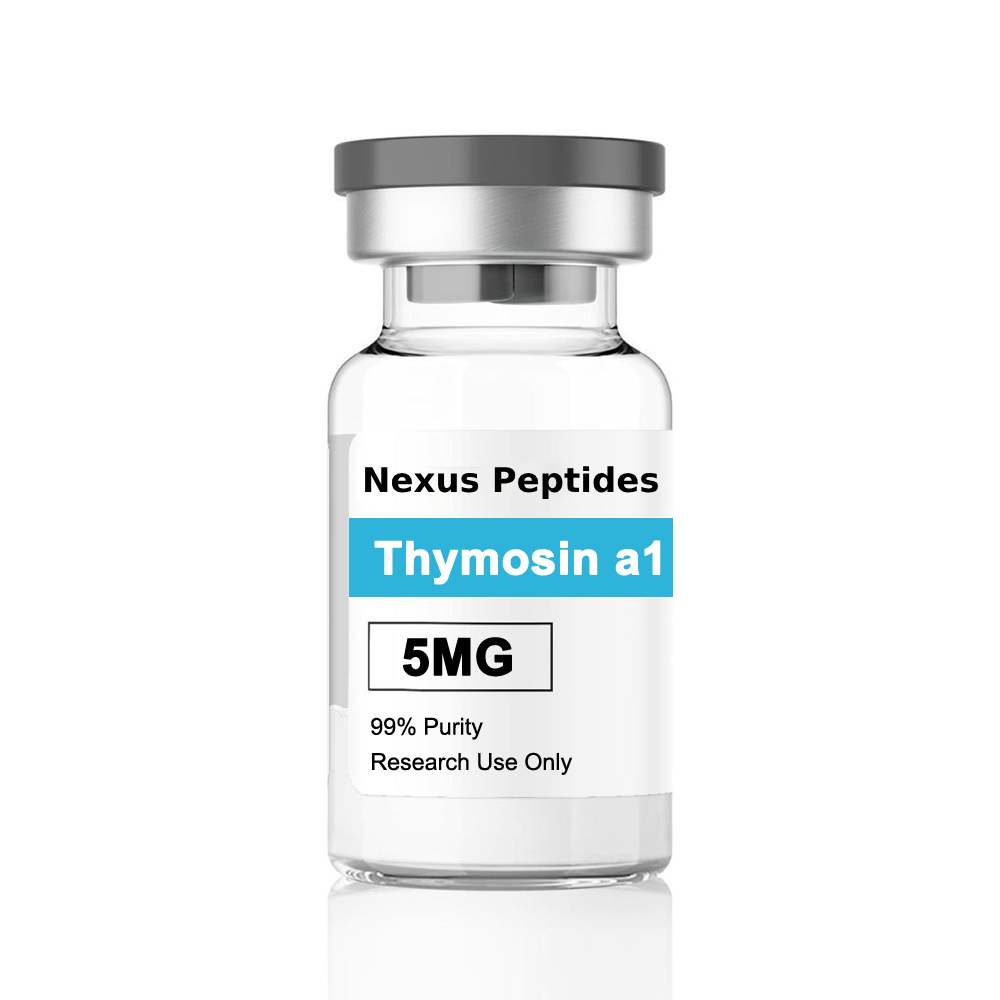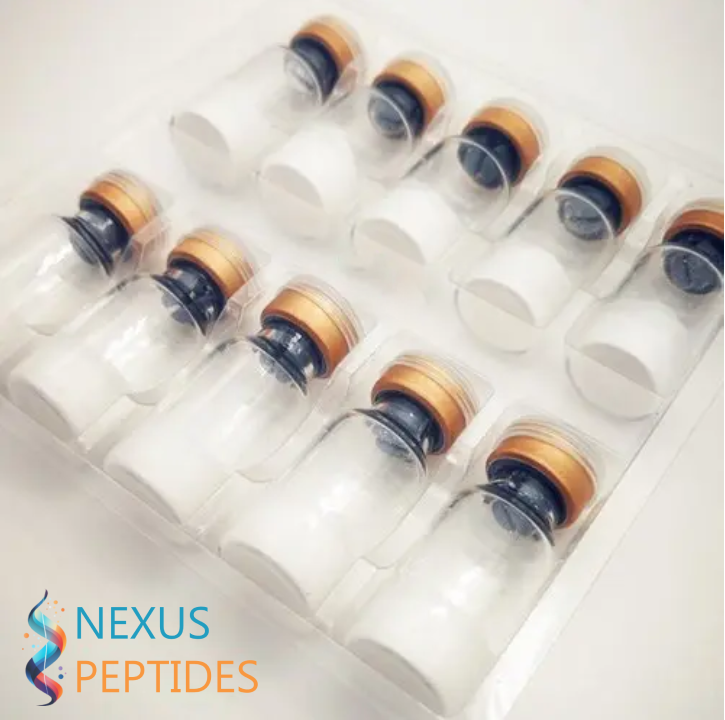

Product Description: Thymosin Alpha 1 (Tα1)
Introduction:
Thymosin Alpha 1 (Tα1) is a peptide derived from the thymus gland that plays a role in regulating immune responses. It is a synthetic version of a naturally occurring protein composed of 28 amino acids. This peptide has gained attention for its potential in scientific research, particularly in studies investigating immune modulation and T-cell development. Thymosin Alpha 1 is utilized in research settings to study its biological effects, including how it might influence immune system processes, specifically the development and function of immune cells. With a high degree of specificity in interacting with certain immune cells, Tα1 serves as an important tool in laboratory studies that aim to explore the complexities of immune system regulation.
What is Thymosin Alpha 1 (Tα1)?
Thymosin Alpha 1 (Tα1) is a polypeptide derived from the thymus gland, a central organ in the immune system. It consists of a sequence of 28 amino acids and is a part of the larger group of thymic peptides that are involved in immune cell regulation. Tα1 is involved in promoting the development and function of T-cells, which are critical components of the immune system. These T-cells originate in the bone marrow but undergo maturation and differentiation in the thymus. The role of Thymosin Alpha 1 is closely linked to the regulation of immune cell responses, particularly in relation to T-cell differentiation and activation. In research, Tα1 is studied for its potential impact on immune system modulation and immune responses.
Potential Different Names:
- Thymosin Alpha 1
- Tα1
- Thymosin A1
- Thymosin alpha peptide
- Thymosin alpha-1 polypeptide
- Thymic peptide Tα1
Chemical Formula:
The chemical formula for Thymosin Alpha 1 (Tα1) is C146H238N42O44S. This formula reflects the peptide’s composition of amino acids, which are connected in a specific sequence to form the functional peptide.
Structure:
Thymosin Alpha 1 is composed of a chain of 28 amino acids, and its structure is defined by the sequence of these amino acids. The amino acid sequence is crucial for its ability to interact with specific receptors on immune cells, particularly T-cells, which play a significant role in immune function. The structure of Tα1 facilitates its ability to bind to cell surface receptors and influence the behavior of immune cells. The peptide’s conformation allows it to interact with the immune system in a way that promotes the development and regulation of immune responses.
Thymosin Alpha 1 has a unique secondary structure characterized by a combination of alpha-helices and turns, which contribute to its biological activity. These structural features allow it to bind specifically to receptors on T-cells, which are involved in immune regulation. In addition to its natural sequence, synthetic variants of Tα1 may be designed to explore its biological activity further.
How Does It Work?
Thymosin Alpha 1 (Tα1) primarily acts by interacting with immune cells, particularly T-cells, to regulate their function. It is believed to have immunomodulatory effects, influencing the differentiation, activation, and maturation of immune cells within the thymus. One of the key roles of Tα1 is to enhance the maturation of T-cells, which are critical for immune responses. These cells must be educated in the thymus before they can effectively participate in immune defense.
The mechanism of action of Thymosin Alpha 1 involves its binding to specific receptors on the surface of immune cells, which then triggers signaling pathways that promote immune regulation. Thymosin Alpha 1 has been studied for its potential to influence the immune system’s ability to respond to various stimuli, particularly how it may help coordinate responses from T-cells.
Because Tα1 is involved in immune modulation, it is often studied in research focused on how the immune system develops and adapts. It is of particular interest in exploring immune system regulation during diseases or conditions that may affect immune function. The precise biological effects and molecular interactions of Thymosin Alpha 1 are still an area of active research.
Conclusion:
Thymosin Alpha 1 (Tα1) is a naturally occurring peptide derived from the thymus gland, which plays a role in the regulation and maturation of T-cells. With a sequence of 28 amino acids, Tα1 has been used in various laboratory studies to investigate its effects on immune cell function, particularly its potential impact on T-cell differentiation. As a highly specific peptide with a defined amino acid sequence, Thymosin Alpha 1 serves as an important research tool for exploring immune responses and the complex mechanisms that govern immune system behavior. Its structure and interactions with immune cells make it an essential focus of immunological studies.
Disclaimer:
This product description is intended solely for research purposes. Thymosin Alpha 1 (Tα1) is not intended for medical use, human consumption, or therapeutic purposes. It should only be handled by qualified professionals in a controlled laboratory setting, following all relevant safety guidelines and ethical protocols. The information provided here is based on current scientific knowledge and is not intended to make any health-related claims.


